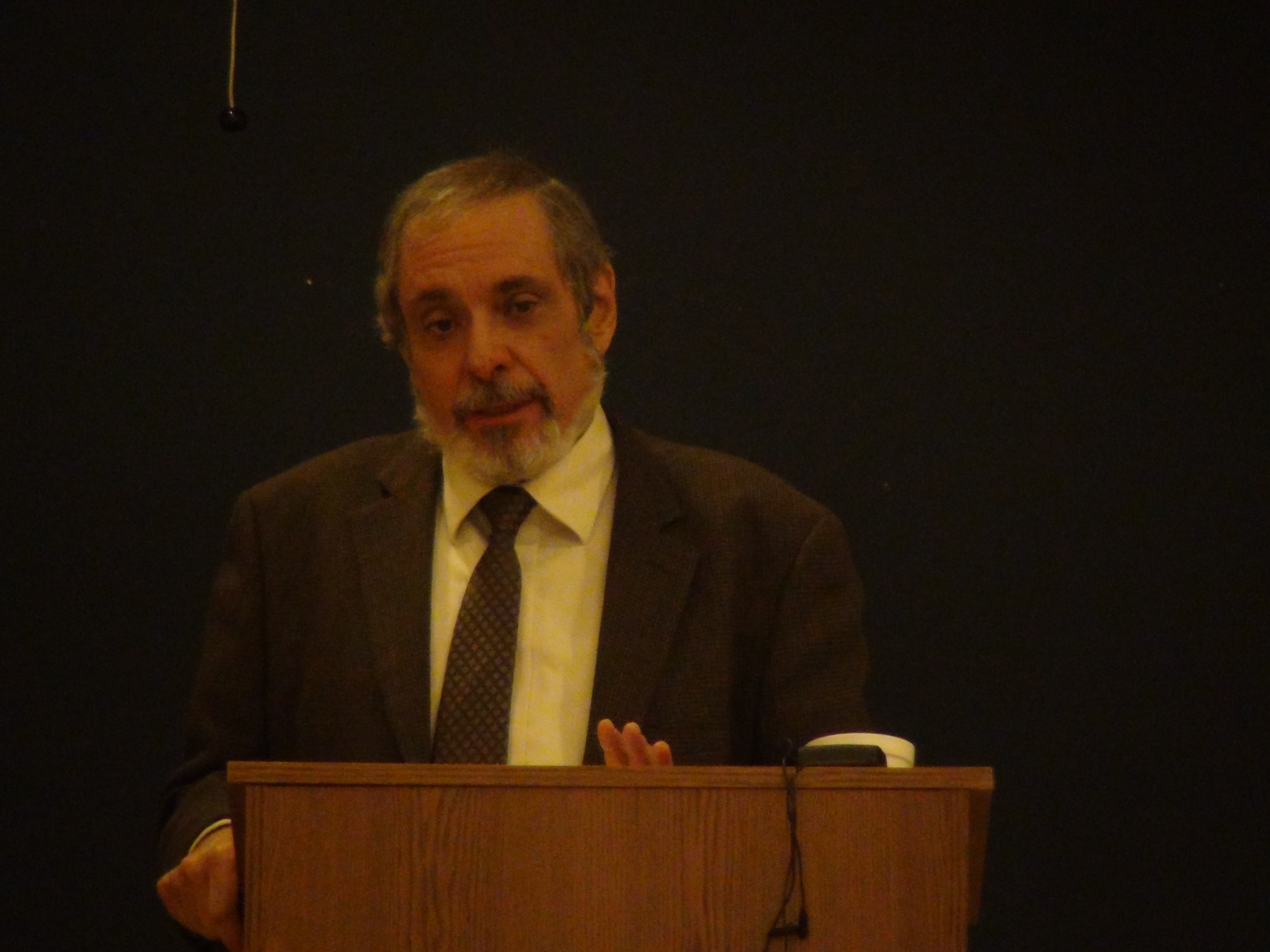The Untold Story of Post-War European Jewry
At GSJS lecture, author David Weinberg speaks about the Holocaust survivors who returned to their former communities.
Much of the research on post-war Jewry concludes that European Jewish life vanished in the catastrophe of World War II. And indeed, statistics show that many Holocaust victims did emigrate from Europe to rebuild their lives in other countries. But, at the same time, there were also masses of Jews who willfully decided to stay on the continent.
What happened to them?
Prominent historian Professor David Weinberg, Ph.D. recently addressed this question in a special lecture he delivered to the students, faculty, and staff of the Graduate School of Jewish Studies (GSJS). His presentation, titled "Recovering a Voice: The Revival of the Jewish Communities of Western Europe after World War II” focused on the topic of the Jews who chose to return to their French, Belgian and Dutch communities rather than immigrating to other countries like Israel or the United States.
Weinberg, whose interest in post-war European Jewry is matched by only a handful of other scholars around the world (including GSJS’s own associate professor of modern Jewish history Dr. Natalia Aleksiun), says he was drawn to it due to the “lack of study of this period,” as this has been “a field that has largely been ignored.”
“The trope is essentially disappearance,” said Weinberg.
“No one can deny, of course, that European Jewry emerged from the Second World War physically weakened and psychologically traumatized,” he elaborated. “Yet while most communities faced devastating losses and some all but disappeared, a few re-established themselves relatively quickly.” Among these communities were the French, Belgian, and Dutch Holocaust survivors.
These Jews faced a number of challenges while trying to rebuild, Weinberg described: the issue of rehabilitation, the need to restructure communal institutions, the crisis of Jewish identity among survivors, and the struggle to control public memory of the war. They were also impacted by the reemergence of anti-Semitism and the crisis of the Cold War. Since “revival of life was painful,” it required a lot of optimism. But it was through their successful responses to these challenges that these three Jewish communities were able to reassert themselves as a distinctive voice among global Jewry.
“What you do see here is a voice that’s struggling—and that’s what makes it an interesting story,” he concluded.
Professor Weinberg, author of A Community on Trial: The Jews of Paris in the 1930s and Between Tradition and Modernity: Haim Zhitlowski, Simon Dubnow, Ahad Ha-Am, and the Shaping of Modern Jewish Identity, has been a visiting professor of modern Jewish history at the University of Michigan and University of Pennsylvania, among others. He served as Professor of History and Director of the Cohn-Haddow Center for Judaic Studies at Wayne State University from 1993 through 2013.
His upcoming book on the reconstruction of Western European Jewish life after the Holocaust will be published in Winter 2015.


